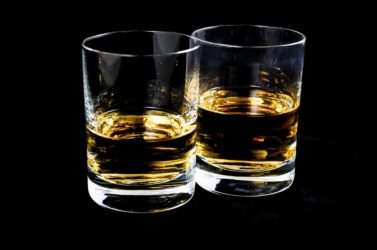
If you’re like many Americans, you probably have a drink or three now and again. But don’t feel too bad about it. So long as there’s moderation (yeah, right?) what you might not know is that there are actually health benefits to consuming alcohol.
Well, a glass of red wine a day with its anti-inflammatory, antioxidant resveratrol is believed to limit brain cell death. (Not too much! Excess alcohol will see off the gray matter!)
Coffee, until recently on the Do Not Drink list has been rehabilitated and is now thought to lower the risk of breast cancer, Type 2 diabetes, heart disease and Parkinson’s disease. Coffee contains chlorogenic acids, which are beneficial antioxidants.
And get this, the latest research suggests that coffee fixes the damage caused to your liver by alcohol!
That’s from Dr Alex Hodge, a consultant gastroenterologist and liver disease specialist at Australia’s Monash University. She and her colleagues studied 1,100 patients with either hepatitis C, hepatitis B or fatty liver. The latter condition is often caused by heavy alcohol consumption and while it produces no symptoms can lead to liver damage.
The good news from the study is that three cups of coffee a day seem to have a positive impact on the liver although the improvements were most marked in Hepatitis C patients, rather than boozers!
And tea (don’t add milk as the proteins block the effects.) Drink tea from the camellia sinensis plant for their polyphenols (antioxidants), fluoride, and caffeine. Drink roiboos, or red bush tea, for a naturally occurring non-caffeine variety, which is used in South Africa (where it is grown) for infantile colic, allergies, asthma and dermatological problems.
Got a sweet tooth? The cocoa used in good quality hot chocolate is full of polyphenols which are antioxidants proven to be positively beneficial for us. And who doesn’t like hot chocolate on those cold, winter nights?
And the toast of choice for get-togethers?
Did you know that champagne is also packed with polyphenols from grapes? These protect vital organs and keep your blood pressure low, as well as triggering the release of dopamine, the “feel-good” chemical in your head.
Fermenting grapes twice, instead of once like regular wine, produces sparkling wine. And sparkling wine such as champagne gives you the same amount of heart protection as red wine.
The British Journal of Nutrition published a study that looked at whether or not champagne could affect how well your arteries work. They discovered that champagne really does make them work more efficiently. They gave people two glasses of champagne to drink, and found that it increased nitric oxide levels. Nitric oxide relaxes blood vessels and lowers blood pressure. They also discovered that the effects last for up to eight hours.
In another study, in the Journal of Agricultural and Food Chemistry it was discovered that three phenolic acids from champagne – tyrosol, caffeic acid and gallic acid – protect against the damage to your brain that free radicals can cause. And they protect you even if you only drink a small amount of champagne!
It’s possible that sparkling wine like champagne may even help your digestion. A German study looked at how different kinds of alcohol affected gastric acid (basically hydrochloric acid) production in people’s stomachs. Distilled spirits, such as whisky, gin or vodka had no effect on gastric acid production but fermented alcohols, like beer, wine and champagne, increase gastric acid production by as much as 95 per cent. As a rule “dry” wines have a higher polyphenol content than their sweeter counterparts.
